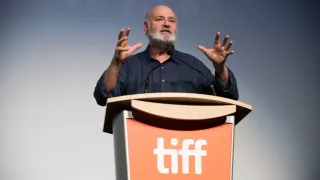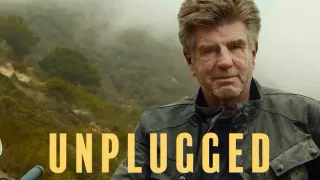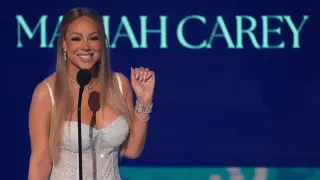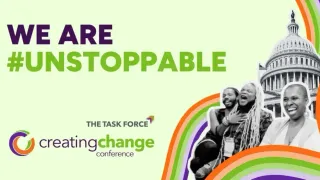September 30, 2015
Carlos Molino on HIV and Latino MSM in Amida Care
Winnie McCroy READ TIME: 10 MIN.
With the US Conference on AIDS taking place in DC earlier this month, EDGE took time to talk with Carlos Molina, Director of Publications and Communications for Amida Care, to provide his insights from the conference. Molina spoke on a panel focusing on the issues affecting Latino gay men and trans women living with HIV: two underserved and underrepresented populations that are severely affected by the HIV epidemic.
�
Molina shared his key takeaways from the panel and provide insights on how to improve access to care, treatment, and quality of life for HIV-positive Latino gay men and trans women.
EDGE: What are the biggest issues facing Latino gay men and trans women with HIV?
Molina: There are many issues, but I think one of the biggest is that we are disproportionately affected by HIV. We are also diagnosed late, so a lot of Latinos get the diagnoses of AIDS a few months after they discover they're HIV-positive, which means they tested late. This means that we are not addressing the needs of the Latino community, especially Latino gay men and transgender Latinas.
Most of the new infections in the Latino community happen in that group. About 80 percent of new infections happen among male to male contact, and that includes transgender women, because the CDC and other agencies do not document transgender women, they just lump them in with MSM. Our issues are very similar because both groups lack access to health care, about a third not insured, the other third have insurance sporadically, and that can affect the way we can take care of ourselves. For people to live longer and reduce their risk of transmission, they should be virally suppressed.
EDGE: How do we provide access to care?
Molina: That is one of the issues we are trying to identify. One of the problems is that we have a significant undocumented population that really don't have access to health care. We encourage advocates to get undocumented people access to care so that those who are positive can stay healthy and live longer and reduce the risk of transmission, and those who are negative could have access to PrEP. Both of those imply care, but you have to visit your doctor regularly and take your medications.
EDGE: What about access to PrEP?
Molina: I think most of us are very excited about the possibility of people enjoying a pleasurable sex life, and not being at risk for acquiring HIV; that's a great advance in public health. It would be good for all of those at risk. But PrEP is more than taking the pill. You have to go to the doctor and be frequently tested and monitored, do labs, and who is going to pay for that? Pharmaceutical access to Truvada is available, but other issues are not covered, and if people are not properly insured, they face great limitations. Advocates for the end of AIDS and healthcare reform also have to advocate for people to be able to have full access to PrEP -- not only medicine but all things and protocol.
EDGE: How much does adherence figure into this equation?
Molina: That's a question that has been haunting us since the beginning of the epidemic, and has turned into one of poverty and discrimination; those two things heavily affect the Latino community. You have to make treatment available to Latino/as across the country, you have to fight stigma and discrimination, we have undocumented people at risk of violence, with transgender Latinas at high risk of violence. All these things will prevent you from following treatment, keeping doctors' visits, etc. It's a challenging problem, and we need to attack it through multiple areas.
EDGE: How does Amida Care help with this?
Molina: One of the things we do really well is support people in pursuit of healthy living. With healthcare itself, 70 percent of our members are virally suppressed, and I'm glad to say that 35 percent of members are Latinos. Our community is benefiting from this service. We try to embrace the member as an individual, understand their needs and give them the support they need to stay in treatment, including picking up somebody in their apartment and going with them to an appointment. It's about validating the humanity of people, not only about African American or Caucasian, but about honoring the dignity of people and trying to embrace people where they are at that moment.
EDGE: This conference took place in Washington, DC, where there are very high rates of HIV among African Americans and and Latinos. How do they begin to address this?
Molina: They are not the highest in percentage, but in proportion to the population, the infection rate is very high. The African-American community is very active and vocal with representatives, and I think that we could learn from them. Our government officials and politicians have to embrace and accept that HIV care is really important for the Latino community and for the health of the nation. We cannot end AIDS in the United States without taking care of the Latino community. If we want to control AIDS, we have to embrace the Latino community and give it services.
EDGE: What exactly does the government need to do?
Molina: First, they have to make sure that all Latinos have access to health care, either through the ACA or community clinics. That's very important, because I think a lot of Latinos prefer to get care through community health centers because people that work there look like us. We have to support those community health clinics. We have to support people who have casual conversations about health that are not scientific but are full of facts, and can connect people with services. They also tend to be bilingual. Language is an important barrier for us. And also health care is a little foreign for Latinos. I was born an American citizen, although the general population doesn't see me as American-born. Americans look and sound like so many different people, we have to start treating everyone like first-class citizens. If you want to have a healthy nation, you can't leave minorities out. And we are the largest ethnic minority: one of every six adults is Latino/a, and one in every 4 children under 18 is Latino. The health of the nation is tied to our health.
EDGE: What can everyday people do to help?
Molina: That's an interesting question. People need to be educated, which is tricky, because we're putting the burden on the individual, but how do you have access to that individual? One of things we discussed is a national dialogue about HIV and PrEP. This is a revolutionary approach, because I see hope for people to live longer, fulfilling lives, and experience sexual pleasure like they haven't in 30 years, but the Latino community is not part of that dialogue. You don't hear our stories or see our faces, we are not invited to table where programs are designed and policy decisions are made.
Individuals need to rise to the occasion, but how do we make them aware? As a nation, they need to include us in that conversation. We need more research on what works for us; a lot of strategies were created for other groups, then changed for us. That doesn't always work. Like a straightforward translation doesn't always work; you have to adapt materials. Media people are encouraged to tell our stories, put our faces there.
Something extraordinary that happened at the conference is that transgender leaders staged an action during a presentation, and took over the stage for 20 minutes. They deserved to be heard, to share their research, to be documented as transgender women and not MSM, to get jobs. It's important that programs for Latino gay men and transgender Latinas include people from that community. The group included transgenders of all races but was led by Latinas, which is something other Latino leaders should emulate. It was one of the most exciting things that happened there, and it was the only time I saw Latino leadership at the conference, and to get it they had to take the stage. This has to happen more -- not that we take over the stage, but that we demand inclusion, that our stories are told, that we have faces, that we are beyond statistics. Not even policy makers relate to numbers, they react to personal stories.
The thing that was most exciting for me was that Latina presence; it was the only leadership I witnessed there, and it was very inspiring. We need programs that embrace people where they are. Amida Care will make a big difference, hope this model gets copied by other states and cities, something that we truly believe will make a big difference. Other clinics will benefit from that effort, because ultimately keeping people healthy saves money. We can no longer assume that people have the resources to be in PrEP successfully. PrEP without access to healthcare in general will not work.
For more information, visit www.amidacareny.org/
text






